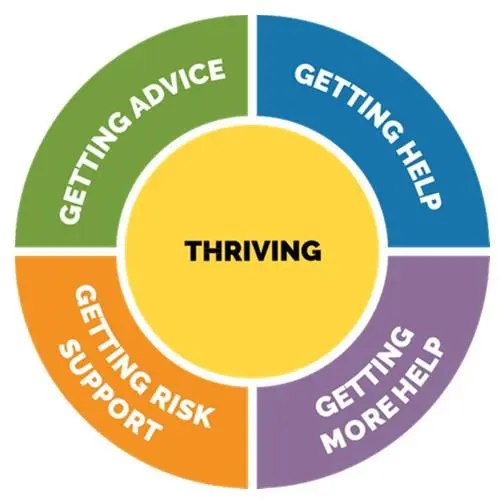Introduction
This resource has been developed to be used alongside the Getting Advice, Getting Help and Getting More Help sections of the Graduated Approach Toolkit (see diagram below). This document covers the fourth part - Getting Risk Support. It covers aspects of SEND that typically present early years settings with challenges, such as responding to self-injurious or distressed behaviours. It is intended as an initial guidance and signposting document, rather than an all-encompassing document with detailed advice of how to respond to each need. Due to the complex nature of the needs described within this document, it will be necessary to take an individualised approach to children’s needs and involve relevant professionals in planning how best to respond; but we hope that this guidance will be helpful in getting you started.

A common thread that runs through each section of this document is the importance of working closely with others in relation to risk. It is important that professionals do not work in silos around matters relating to safeguarding and always involve the Designated Safeguarding Lead within their setting. Not only does a team approach benefit the child as there is increased opportunity for effective support; it also contributes positively to staff wellbeing as staff working within teams around risk are more likely to feel well supported. It is essential that there are clear structures in place within all settings in relation to safeguarding children and transparent plans for managing any safeguarding concerns that are regularly reviewed alongside national and local guidance.
Safeguarding concerns or concern relating to risk please contact Bury's Multi Agency Safeguarding Hub (MASH Team)
Telephone: 0161 253 5678 / Secondary Telephone Number (Emergency out of hours): 0161 253 6606
Email Address: childwellbeing@bury.gov.uk
The Early Help Consultants within each locality, alongside and Team Around the School (TAS) Social Workers linked to each school, can also offer advice and support to schools on any safeguarding concerns, including those that do not meet threshold for Social Care involvement.

